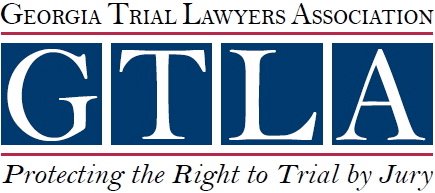Whiplash is a common injury that occurs when the neck experiences a sudden, forceful back-and-forth movement. It’s most frequently associated with car accidents, but whiplash can also result from other types of physical trauma, such as falls or sports injuries. Despite its frequency, whiplash injuries can be complex to litigate due to the often hidden or delayed nature of the symptoms. Litigating these cases in Georgia requires a thorough understanding of the legal process, from initial investigation through trial. With the right approach, victims can receive fair compensation for their pain, suffering, and long-term medical needs. Princenthal, May & Wilson, LLC provides dedicated legal support to individuals suffering from whiplash injuries after car accidents, working to secure fair compensation for medical expenses, lost wages, and pain and suffering.




Understanding Whiplash Injuries
Whiplash is often misunderstood because it may not present immediate, visible signs of injury. While some individuals experience pain, stiffness, or headaches right after the trauma, others might not notice symptoms until days later. This delayed onset can complicate both medical treatment and the legal claims process. Additionally, diagnostic tools such as X-rays and MRIs may not always detect the damage, making it harder for victims to prove the extent of their injuries.
In Georgia, courts take a close look at the medical evidence provided when assessing whiplash cases. It’s critical for the injured party to seek prompt medical care and document all symptoms, even if they seem minor at first. Detailed medical records play a significant role in convincing juries and judges of the legitimacy of a whiplash claim. Working with medical professionals who can clearly explain the nature of the injury is equally essential. Without clear documentation and testimony, insurance companies and defense attorneys may argue that the injury is exaggerated or unrelated to the accident.
The Initial Investigation
The investigation phase is one of the most crucial parts of a whiplash case. From the moment a client walks into the law office, attorneys begin building the foundation of the case. This starts with collecting all relevant information, including police reports, witness statements, and medical records. In whiplash cases, it’s essential to gather as much evidence as possible to show the cause and extent of the injury.
One challenge in litigating these cases is the fact that whiplash injuries are often considered subjective. Symptoms like pain and discomfort cannot be easily measured, which can lead to disputes about the severity of the injury. As a result, the attorney needs to focus on collecting objective evidence to support the claim. Medical reports, imaging scans, and testimony from treating physicians can provide crucial support in establishing the connection between the accident and the injury.
In Georgia, attorneys will often consult with accident reconstruction specialists and biomechanics specialists who can explain the force and impact of the crash. These specialists can demonstrate how the collision could have caused the neck to move in a way that led to whiplash, even if the symptoms were not immediately apparent. This scientific explanation helps to counter any skepticism from the defense and strengthens the client’s case.
Dealing with Insurance Companies
Insurance companies frequently challenge whiplash claims, especially those that do not involve extensive vehicle damage. They may argue that low-speed accidents are unlikely to cause significant injury or that the plaintiff’s symptoms are exaggerated. As a result, dealing with insurance adjusters requires careful negotiation and persistence.
An experienced attorney understands that even a seemingly minor accident can lead to chronic pain and long-term health issues for the victim. They will work closely with medical professionals to create a comprehensive medical report that outlines the full extent of the injury and the necessary treatments. Additionally, attorneys must be prepared to negotiate with the insurance company and push back against low settlement offers.
In Georgia, it is common for insurance companies to attempt to settle whiplash claims quickly and for less than what the victim deserves. However, an attorney representing the victim will ensure that the settlement reflects not only the immediate medical costs but also any future expenses, including physical therapy, lost wages, and potential long-term pain management. By standing firm during negotiations, the attorney ensures the client is fairly compensated for their injuries.
Preparing for Litigation
If a fair settlement cannot be reached through negotiations, the next step is preparing for litigation. This stage involves gathering additional evidence, organizing witness testimonies, and developing a clear narrative of the case. In Georgia, personal injury cases, including whiplash claims, are often resolved through settlement, but having a strong case prepared for trial is always beneficial.
Building a whiplash case for trial involves several key components. First, the attorney must ensure that all medical records and testimonies are ready for presentation in court. These documents are crucial in proving both the existence of the injury and the connection to the accident. Furthermore, the attorney must prepare the client to testify about their experience, symptoms, and how the injury has affected their daily life.
Additionally, the attorney may call upon medical professionals and accident reconstruction specialists to testify in court. Their role is to educate the judge and jury about the science behind whiplash injuries and demonstrate how the client’s injury aligns with the circumstances of the accident. These testimonies are often vital in countering the defense’s argument that the injury is either exaggerated or unrelated to the incident.
Hiring a Personal Injury Attorney How Long Will a Personal Injury Case Take?Related Videos
The Trial Process
Once the case goes to trial, both sides will present their arguments to a judge or jury. The plaintiff’s attorney will introduce evidence that shows the defendant’s liability for the accident and the subsequent injury. This typically includes presenting the police report, witness statements, medical records, and testimonies. The goal is to create a compelling narrative that ties the defendant’s actions to the plaintiff’s suffering.
In Georgia, the burden of proof in personal injury cases is on the plaintiff. This means the attorney must demonstrate that the defendant’s negligence or recklessness directly caused the injury. For whiplash cases, this can be challenging due to the invisible nature of the injury. However, with thorough preparation and strong testimony, a skilled attorney can build a convincing case that highlights the long-term effects of whiplash on the victim’s life.
During the trial, the defense will likely attempt to downplay the injury or suggest that the plaintiff’s symptoms are unrelated to the accident. This is where the experience of medical professionals becomes invaluable. They can explain the mechanics of whiplash in a way that helps the jury understand the severity of the injury, even if it’s not outwardly visible.
Once both sides have presented their cases, the judge or jury will deliberate and determine whether the defendant is liable for the plaintiff’s injuries. If the defendant is found responsible, the next step is determining the amount of compensation the plaintiff is entitled to receive. This compensation may cover medical bills, lost wages, pain and suffering, and any future medical needs related to the injury.
Representative Cases
Litigating whiplash cases in Georgia requires thorough preparation, a deep understanding of medical evidence, and the ability to clearly present the case in court. From the initial investigation to the final verdict, every step in the process plays a crucial role in securing justice for victims. The hidden nature of whiplash injuries makes these cases particularly challenging, but with the right legal representation, victims can obtain the compensation they need to recover and move forward with their lives.
At Princenthal, May & Wilson, LLC, we understand the complexities involved in litigating whiplash cases. Our team is dedicated to guiding our clients through the legal process and fighting for their rights in court. If you or a loved one has suffered a whiplash injury in Georgia, contact our firm to learn how we can help you secure the compensation you deserve.





